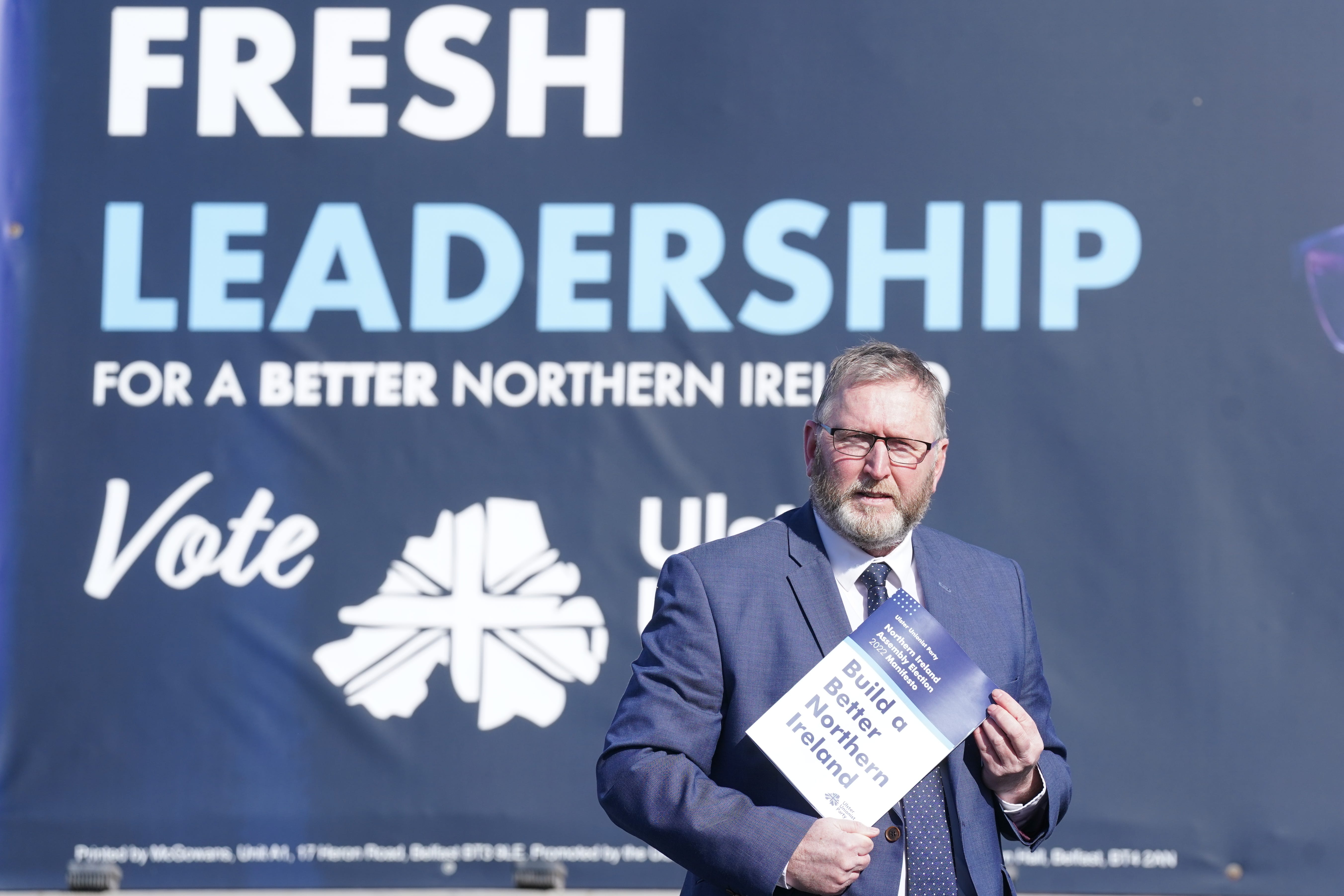Doug Beattie – a leader who felt he was not being allowed to lead
The Army veteran had pledged to move the UUP to the centre ground, an approach that created tension among some traditional party supporters.

Your support helps us to tell the story
From reproductive rights to climate change to Big Tech, The Independent is on the ground when the story is developing. Whether it's investigating the financials of Elon Musk's pro-Trump PAC or producing our latest documentary, 'The A Word', which shines a light on the American women fighting for reproductive rights, we know how important it is to parse out the facts from the messaging.
At such a critical moment in US history, we need reporters on the ground. Your donation allows us to keep sending journalists to speak to both sides of the story.
The Independent is trusted by Americans across the entire political spectrum. And unlike many other quality news outlets, we choose not to lock Americans out of our reporting and analysis with paywalls. We believe quality journalism should be available to everyone, paid for by those who can afford it.
Your support makes all the difference.When he took the helm of the UUP, Doug Beattie conceded he may have to “shrink to grow” the party, as he tried to move it towards the centre ground.
The decorated former Army captain acknowledged that his liberal outlook may mean the party would lose some members, as he tried to reach out to new supporters.
The Upper Bann MLA was the latest in a long line of politicians who tried to reverse the fortunes of the once pre-eminent party in Northern Ireland.
Like his predecessors, he has ultimately failed in that objective, however his departure is nevertheless a shock and has not come on the back of any major controversy or a dismal electoral result.
In his statement, Mr Beattie, 58, cited “irreconcilable differences” with party officers, as he suggested he was being hamstrung in his efforts to lead and shape the party.
There is no doubt his moderate brand of unionism, and his liberal stance on a variety of social issues, created tensions with UUP supporters with a more traditionalist outlook.
However, it also engendered affection among those who believe the party’s revival lies in the centre ground successfully staked out by the cross-community Alliance Party in recent elections.
While those underlying tensions provided the backdrop throughout his three years as leader, there was no sense of a groundswell against him or suggestion those policy fissures were coming to an irretrievable head.
And though the party experienced some disappointing electoral showings under Mr Beattie’s leadership, the recent UK general election was arguably his most successful result yet, with his gamble to run Stormont health minister Robin Swann in South Antrim paying off to secure the UUP’s first Westminster seat since 2017.
While electoral performances and ideological differences undoubtedly created pressures for Mr Beattie, the straw that broke the camel’s back appears to be more prosaic, and is instead rooted in internal discord at senior levels of the party.
Behind-closed-doors wrangles and squabbles over the filling of vacancies and selection of candidates are not unique to the UUP.
But in Mr Beattie’s case, issues around internal management, and in particular a serious fall-out with party officers, appear to have done for his time as leader, his departure coming weeks after a fraught row over the process for selecting Mr Swann’s replacement as an MLA.
Mr Beattie also made no secret of the fact he was in favour of the UUP entering opposition at Stormont to give the party a chance of carving out its own identity outside the powersharing executive.
In the event, he acknowledged the majority of colleagues disagreed with his view, and the UUP took its place in the ministerial coalition when devolution returned in February.
His resignation statement suggests he was a leader who felt he was not being allowed to lead.
Mr Beattie’s tenure was not without controversy.
He admitted he was close to quitting in 2022 when a series of derogatory tweets he posted before entering political life came to light.
He faced accusations of misogyny and racism over comments he posted when he was still serving as a captain in the Army.
The furore erupted when he tweeted a joke which referred to the wife of political rival Edwin Poots.
It escalated after focus turned to Mr Beattie’s historical conduct on X, formerly Twitter, and a series of contentious remarks about women, Muslims, Travellers and people with mental health issues were unearthed.
At the time, Mr Beattie asked people not to define him by his past, after receiving party backing to continue as leader.
Months later he made another apology, this time after he claimed in the Northern Ireland Assembly that DUP MLAs were screaming and whining “like a girl”.
After an objection was raised with the speaker, Mr Beattie resumed his speech with an apology.
“I’m a big enough man to say when I get something wrong. I got it wrong and I will apologise because I got it wrong,” he said.
Focus will now shift to the search for yet another UUP leader.
Whether the next one will fare any better in unifying and resuscitating this troubled party remains to be seen.